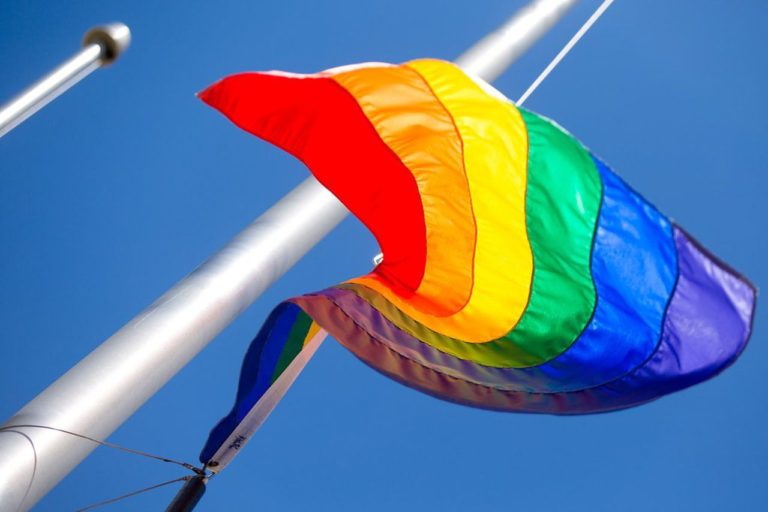

Whether it’s through legislation or at the ballot box in 2022, expanded civil rights protections for Michigan’s LGBT residents are coming, advocates said during a Monday news conference.
Michigan’s Elliott-Larsen Civil Rights Act currently protects people from discrimination based on several factors when it comes to employment, housing and public accommodations: religion, race, color, national origin, age, sex, height, weight, familial status or marital status.
There have been several efforts in recent years to add sexual orientation and gender identity or expression to that list of protected classes, both in the Legislature and via ballot initiative.
In a Monday virtual news conference in support of the latest iteration of the bills in the House and Senate, Gov. Gretchen Whitmer and lead legislative sponsors, Sen. Jeremy Moss, D-Southfield, and Rep. Laurie Pohutsky, D-Livonia, said that while progress has been made on advancing LGBT rights in Michigan, it’s time to address gaps in the law.
“With this bill, Michigan has the opportunity to become a model of equality,” Whitmer said. “Every step we take toward enshrining protections on the basis of gender identity and sexual orientation will impact Michiganders for generations to come.”
The reintroduction is the latest step in a years-long effort to include additional protections for Michigan’s LGBT residents, a cause that’s garnered support among business leaders and advocacy groups, but historically hasn’t gained traction in the Republican-led Legislature.
Senate Bill 208 and House Bill 4297 both have a Republican co-sponsor — Rep. Tommy Brann, R-Wyoming, and Sen. Wayne Schmidt, R-Traverse City. Both Moss and Pohutsky said they were confident that more Republicans would support the measure if it were put up for a floor vote in either chamber.
And with signatures for an effort to change the law via ballot initiative in 2022 currently pending, they said leadership in the Republican-led Legislature won’t be able to ignore the issue this session.
“There is a reckoning coming on this,” Moss said. “We can either pass the ballot proposal as introduced, we could pass the legislation as introduced or we could go to the public. And public support for this far exceeds the leadership of the state Senate or state House of Representatives.”
Related: Michigan lawmakers reintroduce bill to add LGBT protections to civil rights act
Last fall, the group Fair and Equal Michigan submitted 483,461 signatures to the state for its initiative to amend the Elliott-Larsen Civil Rights Act to add gender identity and sexual orientation to the list of protected classes.
Initially, Fair and Equal Michigan was collecting signatures in preparation for a 2020 ballot initiative. The COVID-19 pandemic interfered with those plans — the group successfully petitioned the Court of Claims for a time extension to gather the remaining signatures needed due to state stay-home orders interfering with the ability to meet normal petition signature requirements.
Jey’nece Poindexter, a co-chair of the Fair and Equal Michigan initiative, said LGBT residents still face marginalization and violence despite progress that’s been made, noting she and other transgender women of color are at “the end of the totem pole when it comes to respect and inclusion and real equitable interest.”
She said supporters of anti-discrimination protections for LGBT residents are done waiting for the Legislature to affirm their rights.
“We are no longer asking for permission to have respect of our lives and to be recognized as human beings,” she said. “We are pushing forward, and either you want to join us, or you don’t. We’re going.”
In the Legislature, a 2014 bipartisan push to change the law backed by former Republican Rep. Frank Foster ultimately failed, and Foster himself lost his re-election bid during the primary to former House Speaker Lee Chatfield, who did not support expanding anti-discrimination protections to LGBT residents during his tenure.
Chatfield’s record on the issue sparked a wave of intense criticism when he was hired as CEO of Southwest Michigan First early this year. Eleven days after his hire was announced, Chatfield resigned from the post, and organization officials said they are making internal changes to boost diversity, equity and inclusion in the hiring process.
Pohutsky said the landscape “has changed profoundly” on LGBT rights since the idea of expanding the Elliott-Larsen Civil Rights Act was first introduced. Citing the ongoing COVID-19 pandemic, Pohutsky said it’s important all Michigan residents can support and rely on each other as they take steps to rebuild.
“If there is anything that we have learned through this time, it’s that when our backs are against the wall, it doesn’t matter who the person fighting beside you loves or what their gender identity is,” she said. “It does matter, though, when those same characteristics are used to deny them housing or public services.”
In 2019, Whitmer extended protections to cover people based on sexual orientation and gender identity within the state workforce and for state contractors and services. She also renamed a state office building after the two co-sponsors of the original law, Daisy Elliott and Mel Larsen.
Related coverage:
LGBT anti-discrimination campaign turns in nearly 500,000 signatures for 2022 ballot proposal
Michigan House Speaker not interested in expanding civil rights law to include LGBT protections
Lawmakers, Whitmer renew push to expand civil rights protections to Michigan’s LGBTQ residents
Lee Chatfield made LGBT friends in Lansing, and they don’t see his resignation as a ‘win’